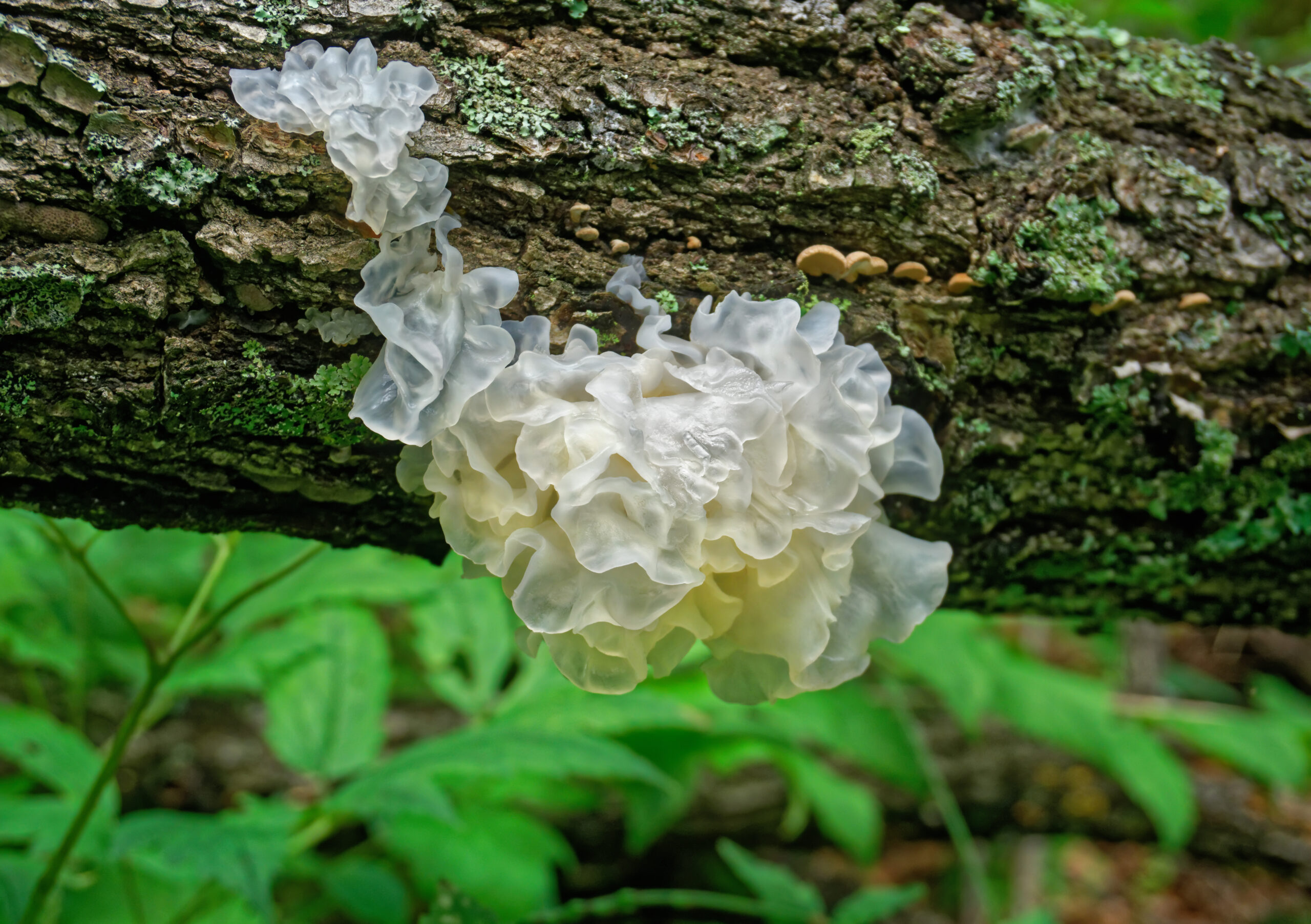White fungus (also known as Tremella fuciformis, snow ear, snow fungus, silver ear fungus, and white jelly mushroom) is a wild edible mushroom widespread, especially in the tropics. It can be found on the on tree bark, broadleaf trees and branches. As for the appearance of the white fungus its frond-like with gelatinous texture.
It’s been used in traditional Chinese medicine and cuisine for centuries. Today, it is still very popular worldwide mainly because it has anti-inflammatory and antioxidant effects.
White fungus characteristics
White or snow fungus are edible mushrooms that belong to the Tremellaceae family.
Due to its features and because it can be mainly found attached to fallen branches of broadleaf trees it is also known as snow ear, snow fungus, silver ear fungus, and white jelly mushroom. It has a white to very pale yellow color, jelly-like texture, it’s almost translucent, and its shape resembles underwater coral.
Snow fungus commonly grows in Asia but is can be also found in tropical climates worldwide, such as Australia, New Zealand, South and Central America and the Pacific Islands.
For centuries it’s been used as a medicinal herb in Chinese medicine promoting many health benefits.
Although there is not information for white fungus nutritional value, it can be said that these mushrooms like many others tend to be low in calories and high in protein and fiber. In general, almost every type of mushroom provides small amounts of calcium, folate and vitamin D which play a key role in bone health, immunity and brain development.
Benefits
Various researchs suggest that due to the carbohydrate chains known as polysaccharides and antioxidant content snow fungus might offer many health benefits to the body. However, researchs are limited and although findings seem promising, more research need to be done in the future. Some of the main benefits of white fungus are:
- Some researchers suggest that white fungus extract fights inflammation, so it is believed that these fungus might have anti-inflammatory effect on the body.
- Test-tube studies show that white fungus may reduce oxidative stress by fighting free radicals so it’s believed that these mushrooms might have antioxidant effect on human body.
- Other test-tube study found that snow fungus may improve memory and be used as a brain booster. At the same time these compounds may also protect human body against heart disease and might prevent LDL (also known as bad) cholesterol oxidation
- Because of the bioactive compounds in white fungus it is believed that they boost your immune system.
- It is interesting that these mushrooms are very popular in the beauty industry due to their moisturizing and antiaging properties.
- The polysaccharides in white fungus can help lower blood sugar levels, improve insulin sensitivity and normalize resistin and adiponectin levels.
- Snow fungus extract might influence diabetes-related hormones and enzymes.
Possible Side Effects
There aren’t reports of allergies or unwanted side effects and toxicity from snow fungus intake. Even so, it is recommended for pregnant women to avoid consuming white fungus as a precautionary measure.
Sources:
https://en.wikipedia.org/wiki/Tremella_fuciformis
https://www.healthline.com/nutrition/white-fungus
Please keep in mind at all times that none of the content published on the “Mushrooms Health” Foundation website constitutes any form of health or medical advice or recommendation. The information on our website is valid for a cumulative number of cases, and cannot be viewed as any type or form of medical advice. We insist that you consult a medical professional if you have any type of diagnosed medical condition, or have reasons to believe you have an undiagnosed one. The “Mushrooms Health” Foundation team is hereby released of any responsibility for any damages, direct or indirect, which may arise out of applying or failing to apply any information published on this website.



